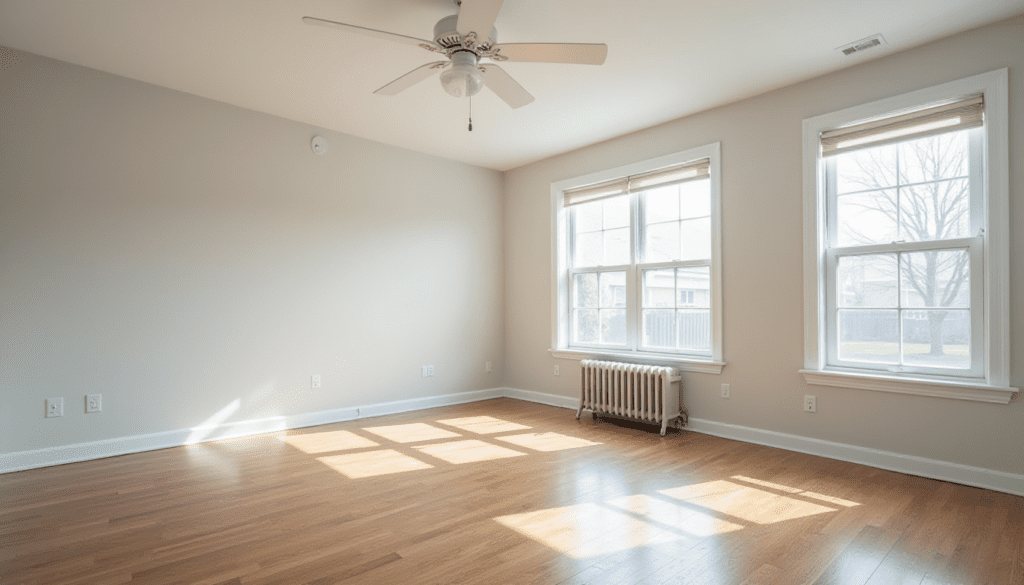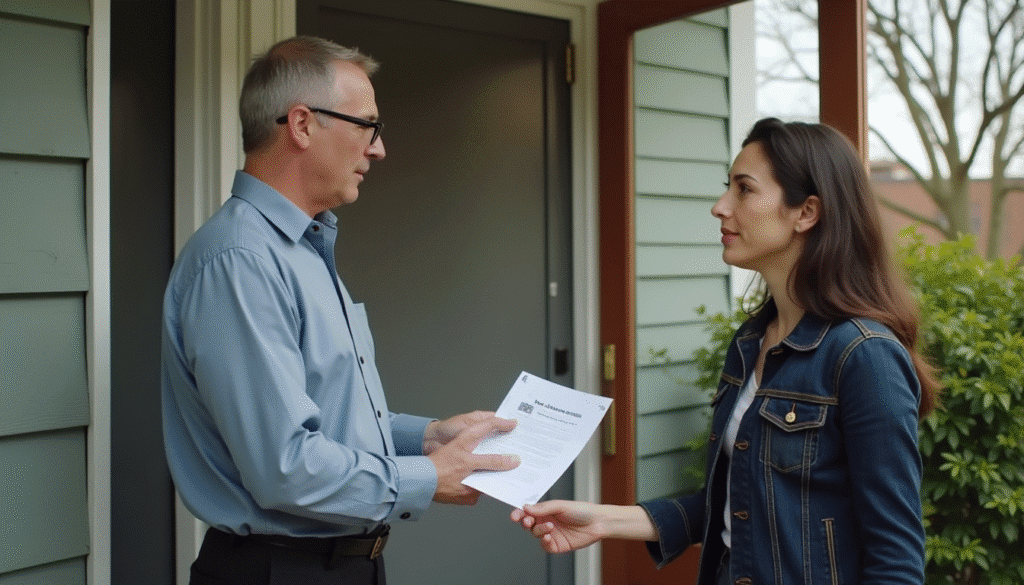1. Introduction – Why this matters in Belleville, NJ
In the borough of Belleville, New Jersey, both landlords and tenants need to understand the mechanics and impact of a 3-Day Notice to Pay or Quit. This type of notice can be the first formal step in an eviction process and may create significant consequences if mishandled. Whether you’re a landlord trying to address non-payment of rent, or a tenant who just received the notice and wants to know what to do, knowing the rules in New Jersey—and how they apply locally—is essential.
For landlords, serving a proper notice protects the legal right to regain possession. For tenants, responding appropriately can help avoid eviction, or at least position them better in court. In Belleville’s market, where rental properties are often in multi-unit buildings and subject to municipal oversight, staying compliant with the process is especially important.
2. What exactly is a “3-Day Notice to Pay or Quit”?
Definition and context in landlord-tenant law
A “3-Day Notice to Pay or Quit” is a formal demand that gives the tenant either the opportunity to pay overdue rent—or vacate the premises within a three-day period. In its simplest form, the notice states: you owe rent (or have breached lease terms), pay now or leave. In New Jersey, this type of notice is part of the broader eviction regime under statutes such as N.J.S.A. 2A:18‑61.2. :contentReference[oaicite:1]{index=1}
It’s important to note: while many think “3-day notice” applies only to nonpayment of rent, the law ties that timeframe specifically to certain serious lease breaches or violations—not always simply late rent. For example, actions such as disorderly conduct, property damage or illegal activity may trigger a three-day notice. :contentReference[oaicite:2]{index=2}
Distinction between “pay or quit” vs “quit only”
In practice, there are two similar but distinct notices: a “Pay or Quit” notice gives the tenant the chance to cure the default (by paying) within the timeframe. A “Quit Only” notice simply demands the tenant vacate without an opportunity to rectify. Under New Jersey law, a true “pay or quit” for non-payment may not always require exactly three days—especially since the statute permits a landlord to go straight to a complaint when rent is unpaid. :contentReference[oaicite:3]{index=3}
From the tenant’s view: if you receive a notice, check whether it explicitly allows payment to cure or simply demands you leave. From the landlord’s view: using the correct notice type and timeframe helps avoid delays or invalidation of your case.
3. The legal basis in New Jersey
Key statute(s): N.J.S.A. 2A:18-61.2 and related provisions
The foundational statute for residential eviction notice requirements in New Jersey is § 2A:18-61.2. It prescribes required notice periods depending on the eviction cause—three days, one month, up to years in certain conversion or redevelopment contexts. :contentReference[oaicite:4]{index=4}
For example, subsection (a) of that statute allows a three-day notice when the action is based on “disorderly conduct … injury to the premises …” among other grounds. :contentReference[oaicite:5]{index=5}
How Belleville NJ falls under state law
Although municipal ordinances in Belleville may add layers (such as registration of rental units or inspection requirements), the eviction notice framework still relies on state law. As a landlord or tenant in Belleville, your principal guide is the statute above and the procedural rules applied in the county court (Essex County, in this case). When you receive or serve a 3-Day Notice to Pay or Quit, verifying the correct statute and local court venue is key.
4. When can a landlord use a 3-day notice in Belleville NJ?
Failure to pay rent (nonpayment)
Non-payment of rent is the most common ground — but in New Jersey it’s not always treated via a “3-day notice” as you might expect. In fact the statute and case law show that for non-payment, the landlord may file a complaint without giving a three-day notice when there is no “habitual” late rent scenario. :contentReference[oaicite:6]{index=6}
However, many landlords still serve a brief notice (often 3 days) as part of good practice, even if not strictly required. The key is to ensure the notice is properly drafted, delivered, and the lease clearly states the rent obligations.
Other grounds where 3-day notice applies (illegal activity, property damage)
Under state law, where the tenant engages in egregious conduct — such as illegal drug activity, assaults, substantial damage, or other lease violations specified by statute — a landlord can serve an unconditional three-day notice to quit. :contentReference[oaicite:7]{index=7}
For example, one source notes: “Tenants who engage in criminal activity on or near the premises can be given a 3-day notice to quit.” :contentReference[oaicite:8]{index=8}
This means in Belleville the landlord must clearly cite the lease clause being violated, serve a proper notice stating the date, and allow only three days (or a legally sufficient period) before filing the eviction action.
5. What must the notice include to be valid?
Contents required by law
A valid notice must identify the tenant, specify the property, state the landlord’s demand (either pay or quit, or vacate), and cite the grounds or lease clause(s) being breached. For example, a “Notice to Quit and Demand for Possession” is required in many cases. :contentReference[oaicite:9]{index=9}
In addition to wording, the actual statute mandates that no judgment of possession may be entered unless the required notice was served. :contentReference[oaicite:10]{index=10}
Service and delivery requirements
How you serve the notice matters. In New Jersey, service may need to be personal or by certified mail, or posted in a conspicuous place if no one is available—depending on local court requirements. :contentReference[oaicite:11]{index=11}
Landlords in Belleville should keep proof of service (date, method, address). If the notice is incorrectly served, the case may be dismissed or delayed. From the tenant’s perspective, check whether service was done correctly—if not, you may have a defense or delay opportunity.
6. Timeline: After the notice is served
What the tenant must do within three days
Once a 3-Day Notice to Pay or Quit is served, the countdown begins. The tenant has a narrow window to either pay the overdue rent in full (including any applicable late fees if legally permissible) or vacate the property. In Belleville, NJ, those three days are typically counted as business days—not weekends or holidays—unless the lease specifies otherwise. This short timeline is designed to prompt swift action from the tenant while still providing a minimal opportunity to cure the default.
Tenants should immediately communicate with their landlord or property manager, document any payments, and retain receipts. Many disputes arise when payments are made after the notice but before the eviction filing—keeping a record is key.
What happens if tenant does not pay or quit
If the tenant neither pays nor vacates after the notice period expires, the landlord may file a formal eviction complaint in the New Jersey Special Civil Part Court, located in Essex County for Belleville properties. Once filed, the court sets a hearing date—often within a few weeks—where both parties can present evidence.
At this stage, the tenant may still stop eviction by paying rent before judgment, though it depends on the case’s progress. As per NJ Court rules, even after judgment, tenants can cure the default within three business days before a warrant for removal issues.
When landlord may file an eviction complaint
In Belleville, landlords usually wait until the notice period has fully expired before proceeding to court. Premature filings can be dismissed, leading to wasted fees and delays. The landlord must attach a copy of the notice, proof of service, and lease agreement to the court complaint. This paperwork forms the foundation of the eviction case.
7. Tenant rights after a 3-day notice in New Jersey
Ability to cure by paying rent even after judgment
New Jersey is considered a tenant-friendly state. Under state law, even after a judgment for possession, tenants still have limited rights to cure nonpayment. Specifically, they may stop eviction by paying the full amount due within three business days after judgment—before a warrant of removal is executed. This provision reflects the state’s policy of preventing homelessness and encouraging rent compliance rather than displacement.
In Belleville, tenants should know that courts often expect proof of payment—such as a money order, cashier’s check, or bank receipt. Communicating directly with the landlord’s attorney and the court clerk ensures proper documentation.
Defense strategies for tenants
Tenants may contest the notice or eviction if:
- The notice was improperly served or used the wrong statutory period.
- The rent amount claimed is incorrect or already paid.
- The property was in serious disrepair, violating habitability laws.
- The landlord retaliated for complaints about conditions or code violations.
In these cases, tenants may present evidence and request dismissal. Legal aid organizations and tenant advocacy groups in Essex County can provide assistance. Always remember, an eviction judgment affects credit and rental history, so taking prompt action is critical.
8. Landlord responsibilities and risks
Ensuring notice is properly drafted and served
Landlords must ensure the 3-Day Notice is accurate, detailed, and lawfully delivered. Mistakes—such as naming the wrong tenant, miscalculating rent, or improper service—can invalidate the notice. When this happens, the court will dismiss the case, forcing the landlord to restart the process and lose valuable time and rent income.
Using templates from verified sources or consulting an attorney can prevent errors. Always include key details: tenant names, property address, amount due, date served, and grounds for the notice. Document delivery with certified mail receipts or signed acknowledgments.
Risks of invalid notice or illegal lockout
Under New Jersey law, a landlord cannot lock out a tenant or remove belongings without a court order. Doing so constitutes an illegal eviction and can result in damages, fines, and legal fees. ([nolo.com](https://www.nolo.com/legal-encyclopedia/the-eviction-process-new-jersey-rules-landlords-property-managers.html?utm_source=chatgpt.com))
In Belleville, tenants can report unlawful lockouts to local law enforcement or the Essex County court. Therefore, landlords should never attempt “self-help” evictions. Instead, follow due process: serve the notice, wait the statutory period, and file properly in court.
9. Specific considerations for Belleville NJ landlords & tenants
Local practices or court venues (Essex County, etc.)
Belleville falls within Essex County, where the Special Civil Part Court handles all residential eviction matters. The court enforces statewide eviction law but has local filing procedures and timelines that differ slightly by county. Knowing the local rules helps landlords avoid administrative delays and tenants understand where to appear for hearings.
Additionally, Belleville’s rental market is dense, with many multi-family homes. Local regulations require property registration and sometimes additional notice filings. Property owners should review Belleville’s municipal website or consult their property management company for compliance.
Property management tips in Belleville
For landlords using services like Rentshield Property Management, consistency in lease enforcement and documentation is critical. Maintain digital records of notices, rent ledgers, and communications. This protects both sides if disputes arise and ensures the court recognizes the landlord’s good-faith efforts.
10. Sample scenario: How it plays out in Belleville
Example timeline: tenant misses rent → notice → complaint → judgment → removal
Here’s how a typical Belleville case unfolds:
- Rent due on the first of the month; tenant fails to pay by the grace period.
- Landlord issues a 3-Day Notice to Pay or Quit on the 6th.
- Tenant neither pays nor vacates within three business days.
- Landlord files a complaint for possession in Essex County court around the 11th–12th.
- Hearing scheduled about two weeks later; both parties appear.
- If the court rules for landlord, judgment for possession is entered.
- Tenant still has three business days post-judgment to pay before removal.
- If payment not made, sheriff executes a warrant of removal within a few days.
What if tenant pays just after notice?
If the tenant pays the full rent and fees before the landlord files in court, most landlords will accept the payment and withdraw further action. Accepting payment after a notice generally resets the tenancy, but it’s best practice for landlords to provide a written confirmation stating that acceptance does not waive future defaults. For tenants, this payment immediately stops escalation and avoids court filings on record.
However, if the landlord already filed and obtained a judgment, paying after that point requires communication with the court and may involve additional costs. Acting fast is always the best option.
11. Frequently Asked Questions (FAQ)
What is a 3-Day Notice to Pay or Quit in Belleville NJ?
A 3-Day Notice to Pay or Quit is a written demand from the landlord requiring the tenant to pay past-due rent or vacate the rental unit within three days. In Belleville, NJ, this type of notice aligns with New Jersey state laws under N.J.S.A. 2A:18-61.2. It serves as the initial step before filing an eviction complaint in Essex County court.
Who can serve a 3-Day Notice to Pay or Quit in Belleville NJ?
The landlord, property owner, or an authorized property management company (like Rentshield Property Management) can serve the notice. Proper service methods include personal delivery, certified mail, or conspicuous posting if the tenant cannot be reached in person. Proof of service should always be documented to ensure validity in court.
How do tenants respond to a 3-Day Notice to Pay or Quit?
Tenants have three business days to either pay the full rent amount due or vacate the property. If they pay the full balance before the landlord files a complaint, the eviction process typically halts. It’s critical for tenants to keep proof of payment, such as a receipt or money order stub, in case of future disputes.
What rights do tenants have after receiving a 3-Day Notice in New Jersey?
New Jersey tenants retain certain protections even after receiving a 3-Day Notice. They can cure the default by paying rent before or within three business days after a judgment is entered. Additionally, tenants can raise legal defenses, such as improper notice service, incorrect rent calculation, or landlord retaliation for maintenance complaints. (NJ Courts: Landlord-Tenant Help)
How long after a 3-Day Notice can a landlord file for eviction?
Once the three-day window expires, landlords may file an eviction complaint in Essex County’s Special Civil Part Court. The process generally begins 4–7 days after the notice period ends, depending on how quickly documents are filed. The landlord must attach copies of the lease, the 3-Day Notice, and proof of service.
What happens if a tenant pays within the 3-day period?
If the tenant pays all rent due within the three days, the landlord should accept the payment and refrain from filing for eviction. This effectively cures the default. However, landlords can still pursue future action if late payments become habitual. Tenants should always request written confirmation that their payment resolved the current notice.
Can a tenant stop eviction after receiving a 3-Day Notice?
Yes. Tenants can stop the eviction by paying the full rent owed or by negotiating a payment plan with the landlord before judgment. Even after judgment, tenants may still pay in full within three business days to prevent a warrant of removal from being executed. (NJ Courts Self-Help)
What must be included in a valid 3-Day Notice?
The notice must include: tenant’s name(s), property address, total rent owed, the specific time allowed to pay or vacate (three days), the date of service, and the landlord’s name and signature. If any of these details are missing, the court may consider the notice defective.
Are there special rules for subsidized housing or Section 8 tenants?
Yes. Tenants receiving government assistance must also receive notices that comply with federal HUD requirements. In Belleville, property owners of subsidized units must serve both the tenant and the housing authority. Failing to do so can delay or invalidate an eviction case.
What costs can a landlord recover when serving a 3-Day Notice?
Generally, landlords can recover unpaid rent, court filing fees, and possibly attorney’s fees if the lease agreement explicitly allows it. Late fees or penalties must also be clearly stated in the lease to be enforceable.
12. Common mistakes to avoid
Landlords: Sending wrong notice type or wrong timeline
One of the most frequent errors Belleville landlords make is serving the wrong type of notice or miscalculating the timeline. For instance, using a “3-Day Notice” for nonpayment when the law doesn’t require it may not invalidate the eviction, but inconsistencies can confuse the court. Always double-check whether the violation is one that truly qualifies for a 3-Day period under N.J.S.A. 2A:18-61.2.
Tenants: Ignoring the notice or delaying action
Tenants often assume the notice is just a warning and ignore it. This is a mistake. In Belleville and across New Jersey, the 3-Day Notice is a legal precursor to eviction. Failure to respond quickly can lead to a court summons and potential removal. Tenants should act immediately—by paying, communicating, or seeking legal advice—to prevent escalation.
13. How your property management in Belleville can help
The value of documentation, lease terms, and consistent rent policies
Professional property management companies, like Rentshield Property Management, streamline the process for both landlords and tenants. They ensure notices comply with state law, maintain rent ledgers, and coordinate with legal counsel when necessary. A well-documented process minimizes disputes and ensures that any eviction filing is supported by accurate records.
Working with legal counsel if necessary
Even though landlords may represent themselves in New Jersey’s Special Civil Part Court, consulting an attorney is often beneficial—especially in contested cases or for multi-unit properties. A lawyer ensures that notices, filings, and court appearances are handled correctly, reducing the risk of procedural mistakes.
14. Conclusion & Next Steps
What both landlords and tenants should do next
For landlords in Belleville, the next step after a 3-Day Notice should be ensuring proper service and documentation before proceeding to court. For tenants, it’s vital to communicate immediately, verify rent balances, and act quickly within the limited window provided. Understanding rights and responsibilities under the 3-Day Notice to Pay or Quit protects both sides and fosters fair housing practices across Belleville and Essex County.
When to consult an attorney
If disputes arise, or if you’re unsure whether the notice is valid, contacting a qualified New Jersey landlord-tenant attorney or a professional management firm like Rentshield Property Management is the best course. They can provide guidance tailored to your specific situation, help draft compliant notices, and ensure smooth resolution.
15. Ready for Help?
Whether you’re a landlord handling a tenant default or a renter who just received a 3-Day Notice to Pay or Quit in Belleville NJ, it’s important to act quickly and with accurate information. Contact Rentshield Property Management for personalized assistance. Our team can help draft compliant notices, coordinate with attorneys, and guide you through the Essex County eviction process step-by-step.
Disclaimer: This article is for informational purposes only and should not be taken as legal advice. Always consult with a qualified attorney for guidance specific to your situation.






